Full-length Multipass Transmembrane Proteins

OriGene's Solutions for Transmembrane Protein Research
We offer full-length multipass transmembrane protein in four platforms: Synthetic Nanodisc, Membrane Nanoparticles, Virus-like Particles, and Exosomes. Full-length proteins produced using these platforms leverage the mammalian expression system and maintain their native conformation and activity.
Overcoming Challenges in Transmembrane Protein Studies
Transmembrane proteins (TMPs) are essential for cellular functions and are targets for many drugs. However, TMP research is often hampered by challenges such as:
- Loss of functionality outside the membrane
- Low expression levels
- Aggregation tendencies due to hydrophobic nature
These challenges make it difficult to study and utilize TMPs in drug discovery.
View all Transmembrane Protein Products
Platform #1: Synthetic Nanodiscs
OriGene's Synthetic Nanodiscs are directly prepared from cells, using polymers as detergents to dissolve cell membranes and form Nanodiscs around membrane proteins. This process enables high-homogeneity purification of membrane proteins under aqueous conditions.
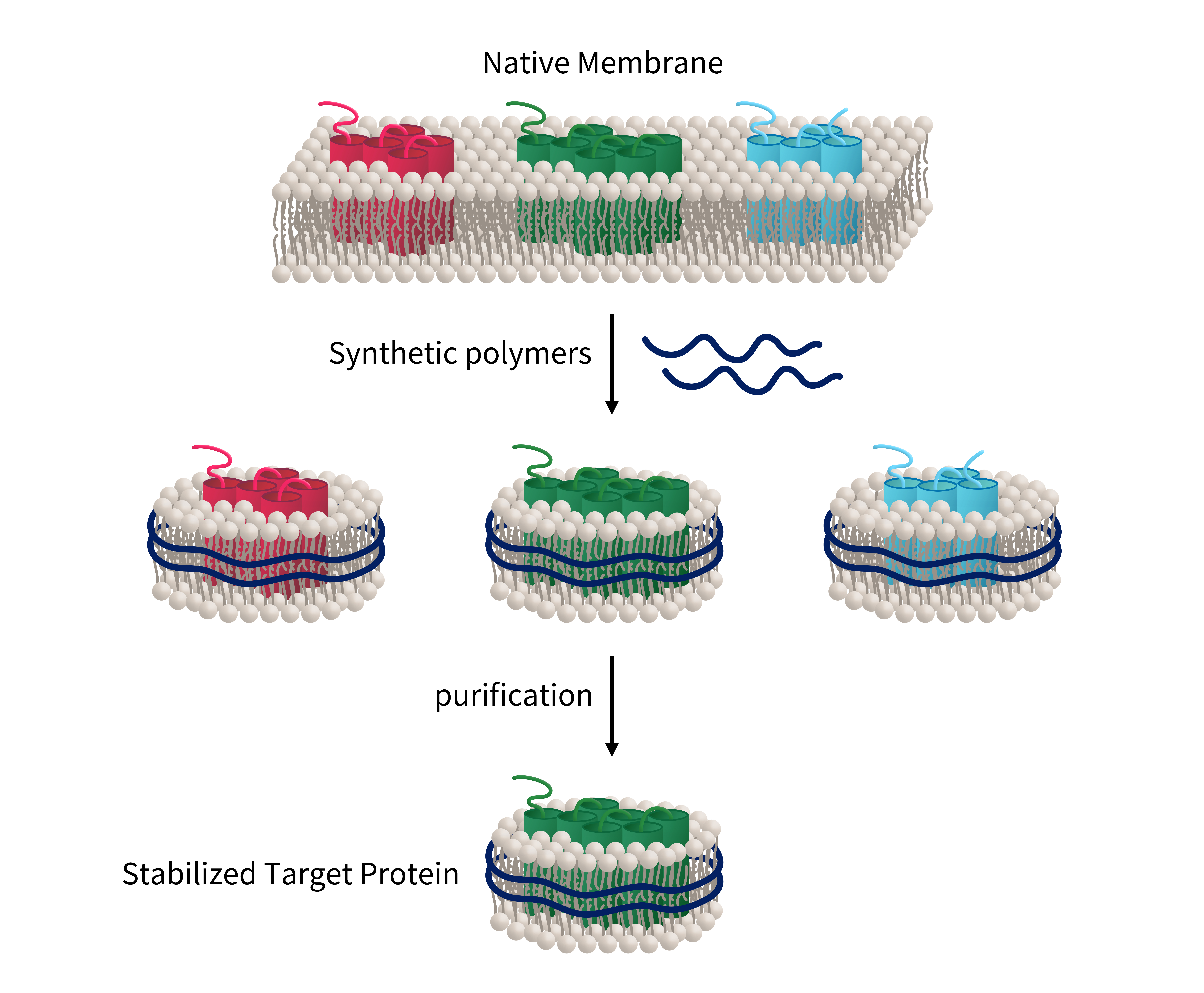
Key Benefits
- Highly purified membrane protein
- Highly soluble in aqueous solutions
- Highly stable, available in lyophilized form
- Biologically active
- No detergent to interfere with cell-based assays
- No membrane scaffold backbone proteins
Applications
- ELISA
- SPR affinity analysis
- Phage display screening
- Cell-based assays
- CAR-T cell screening
- Protein crystal structure analysis
Validation Data:
Human CLDN18.2 full-length protein - Synthetic Nanodisc (TP721388)
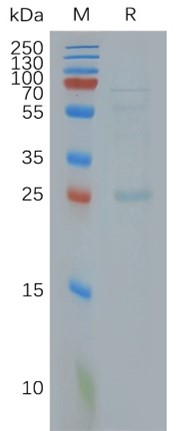
|
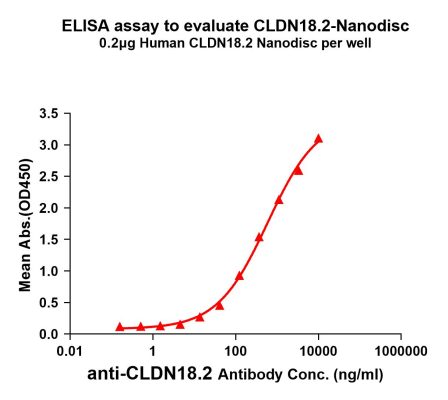
|
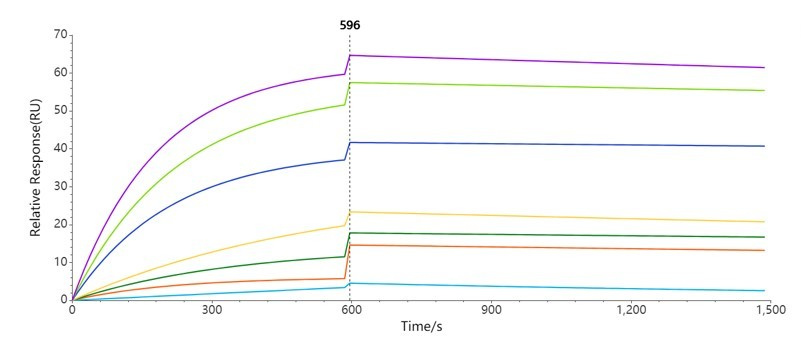
|
|
|
|
|
Platform #2: Membrane Nanoparticles (MNPs)
OriGene's high-purity MNPs are produced by extracting and extruding membranes from HEK293 cells, overexpressing target proteins. These nanoparticles leverage cell membranes' natural functions, ensuring high biocompatibility, specificity, and minimal side effects.
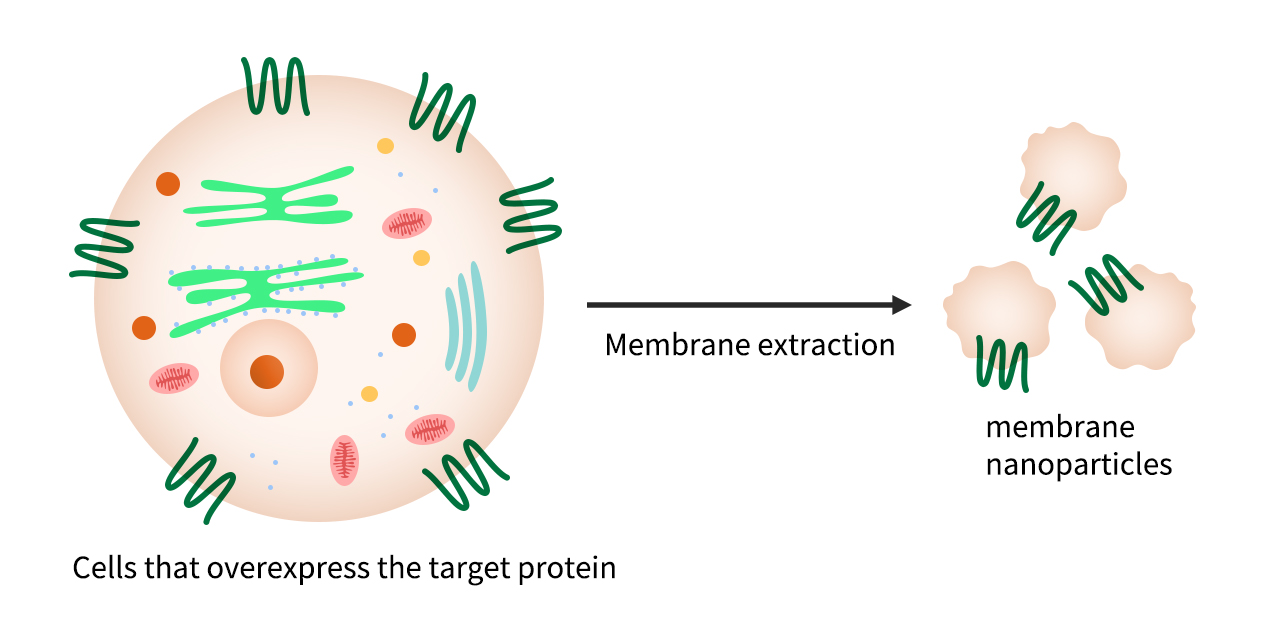
Key Benefits
- High display density of target membrane proteins
- Native structure and orientation of transmembrane protein
- Soluble in aqueous solution
- Detergent-free purification process
- Strong immunogenicity
- Purify membrane proteins that can't be produced via VLPs and EXOs
Applications
- ELISA
- SPR affinity analysis
- Phage display screening
- Cell-based assays
- CAR-T cell screening
Validation Data:
Human CCR8 Recombinant Protein, Membrane Nanoparticle (TP721378)

Flow cytometry validation of Human CCR8 MNP protein: CCR8 full-length MNP stained (A) only with Goat anti-human IgG 488 secondary antibody; (B) with an irrelevant antibody at 2 μg/mL, followed by Goat anti-human IgG 488 secondary antibody; (C) with anti-CCR8 antibody at 2 μg/mL, followed by Goat anti-human IgG 488 secondary antibody; and (D) Control MNP stained with anti-CCR8 antibody at 2 ug/mL, followed by Goat anti-human IgG 488 secondary antibody.
Platform #3: Virus-like Particles (VLPs)
Virus-like particles are self-assembling nanoparticles that mimic viruses structurally but lack a viral genome. Purified VLPs have target membrane proteins embedded in a bilayer phospholipid membrane, closely resembling their natural state.
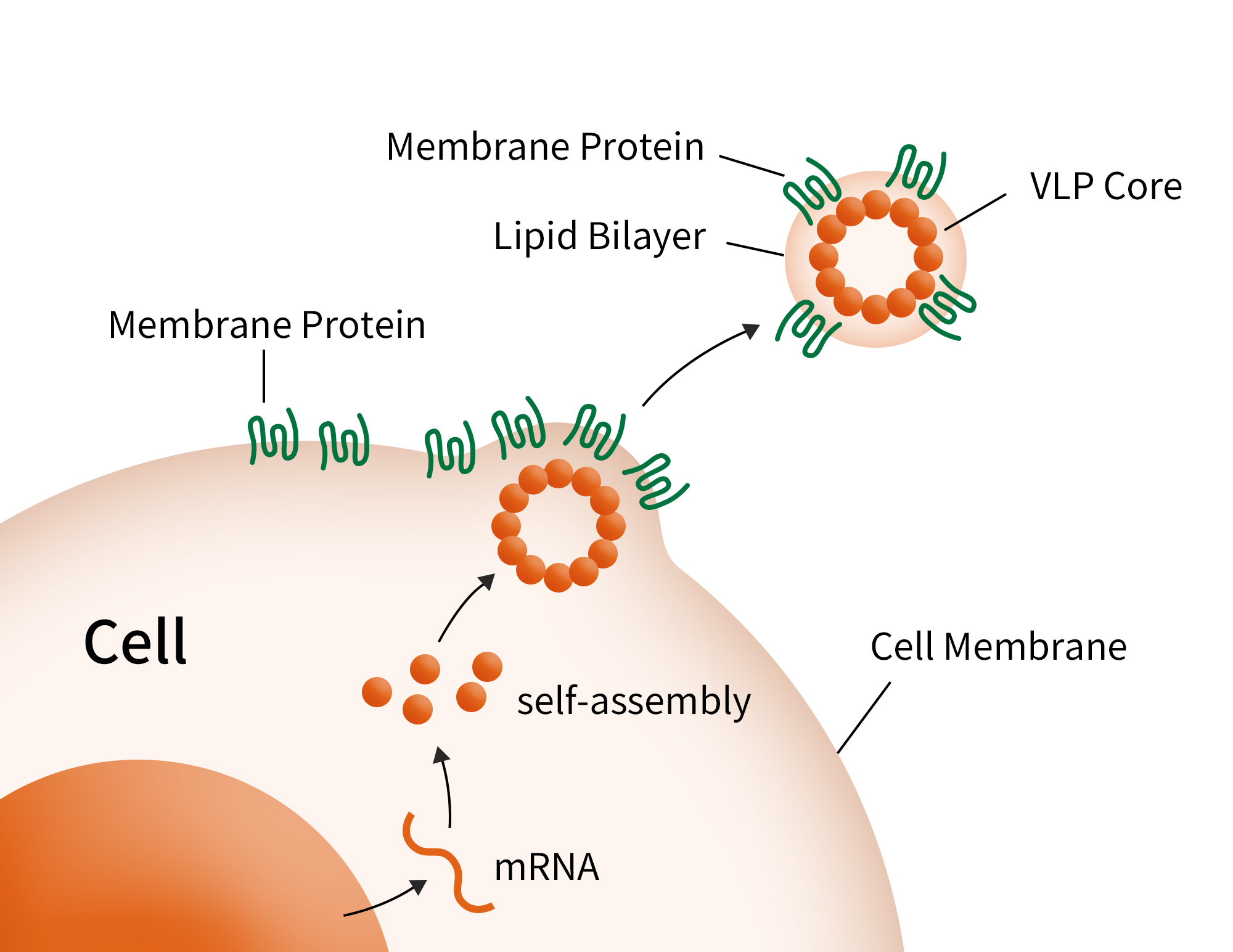
Key Benefits
- High display density of target membrane proteins
- Mimic native structure and orientation of transmembrane protein
- Detergent-free purification process
- Strong immunogenicity from virus proteins
Applications
- ELISA
- SPR affinity analysis
- Phage display screening
- Immunization
- Cell-based assays
- CAR-T cell screening
Validation Data:
Human CLDN18.2 Recombinant Protein, Virus-like Particle (TP721381)
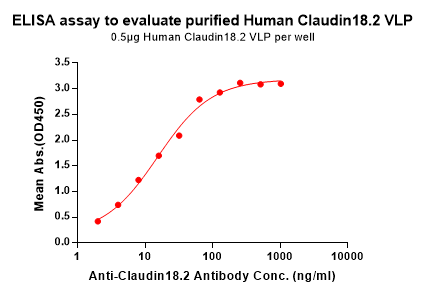
ELISA evaluation of Human CLDN18.2 VLP protein: ELISA plates were pre-coated with 0.5 ug/per well-purified human Claudin 18.2 VLP. Serially diluted Anti-Claudin18.2 monoclonal antibody (Zolbetuximab biosimilar) solutions were added, washed, and incubated with the secondary antibody before ELISA reading. From the above data, the EC50 for Zolbetuximab biosimilar binding with Claudin18.2 is 15.37ng/ml.

Flow cytometry validation Human CLDN18.2 VLP protein: ELISA plates were pre-coated with 0.5 ug/per well-purified human Claudin 18.2 VLP. Serially diluted Anti-Claudin18.2 monoclonal antibody (Zolbetuximab biosimilar) solutions were added, washed, and incubated with the secondary antibody before ELISA reading. From the above data, the EC50 for Zolbetuximab biosimilar binding with Claudin18.2 is 15.37ng/ml.
Platform #4: Exosomes (EXOs)
Exosomes are membrane-bound nanoparticles secreted through multivesicular body fusion with the cell membrane. Like VLPs, EXOs exhibit excellent immunogenicity due to their plasma membrane-like structure. Overexpressed membrane proteins can integrate into exosome membranes, allowing for purification and downstream studies. Unlike VLPs, purified EXOs have minimal cytotoxicity. However, membrane protein incorporation and secretion into exosomes can be selective.
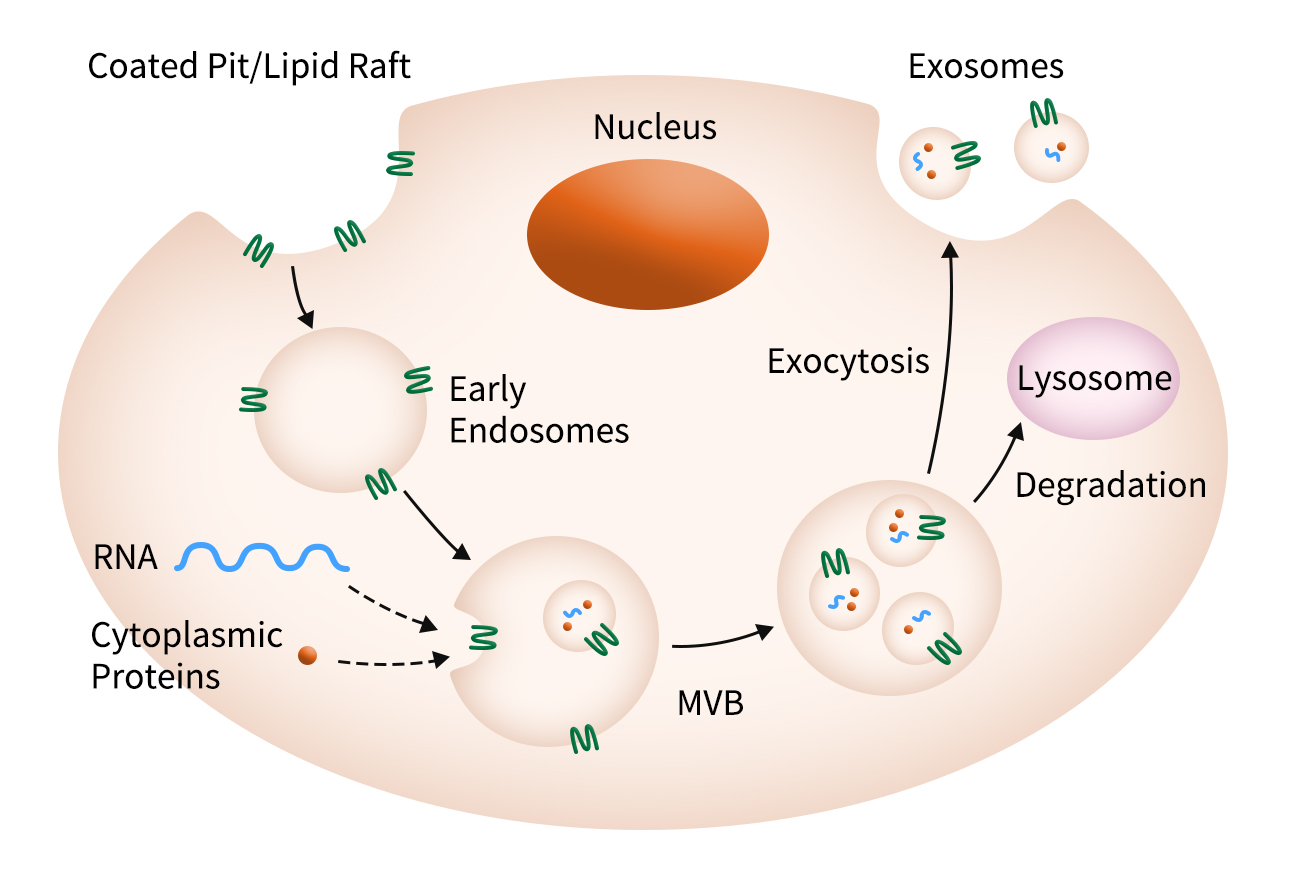
Key Benefits
- High display density of target membrane proteins
- Mimic native structure and orientation of transmembrane protein
- Detergent-free purification process
- Strong immunogenicity from virus proteins
Applications
- ELISA
- SPR affinity analysis
- Phage display screening
- Immunization
- Cell-based assays
- CAR-T cell screening
Validation Data:
Human CD24 Recombinant Protein, Exosome (TP721379)

|
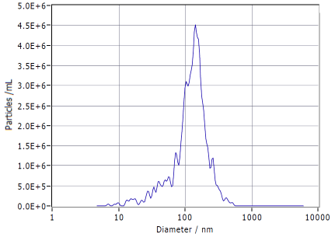
|
|
|
|
Recombinant Protein Resources |






























































































































































































































































 Germany
Germany
 Japan
Japan
 United Kingdom
United Kingdom
 China
China